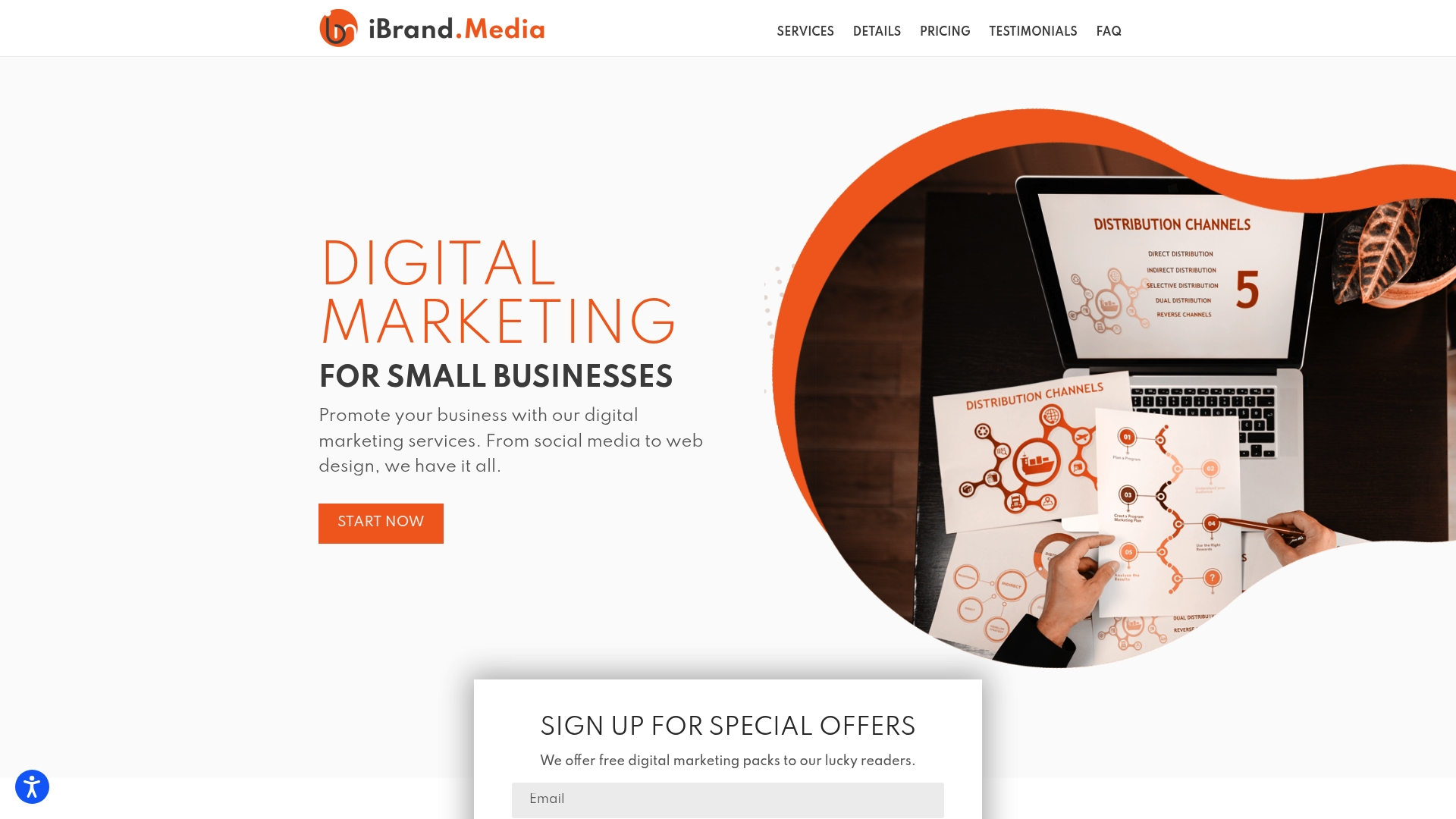Business owners today face a tough choice about how to handle marketing. A stunning 62 percent of small businesses now prefer to manage their own marketing instead of hiring agencies. That might sound risky, especially with so many specialized agencies promising incredible results. The surprise is that going the DIY route is helping entrepreneurs reach their audiences faster and with a more personal touch than ever before.
Table of Contents
- Defining DIY Marketing: Concepts And Principles
- Agency Support Explained: What Agencies Offer
- Evaluating The Benefits Of DIY Marketing Vs Agency Support
- Understanding Costs And Resources In Marketing Choices
- Real-World Examples: Choosing Between DIY Marketing And Agency Support
Quick Summary
| Takeaway | Explanation |
|---|---|
| DIY marketing offers cost-effective strategies | Businesses can control marketing costs while maximizing their promotional efforts using their insights and tools. |
| Understand your unique market position | Self-managed marketing is more effective when businesses know their specific audience, enhancing connection and relevance. |
| Agencies provide expert-level marketing infrastructure | Professional agencies leverage specialized knowledge and advanced tools for more sophisticated, tailored marketing campaigns. |
| Balance DIY and agency support | Hybrid strategies combine cost control with access to expertise, optimizing marketing efforts and resources effectively. |
| Evaluate financial investments in marketing | Consider both direct costs and opportunity costs to make informed decisions on marketing strategies. |
Defining DIY Marketing: Concepts and Principles
DIY marketing represents a strategic approach where businesses independently manage their promotional activities without hiring external professional agencies. This method empowers entrepreneurs and small business owners to take direct control of their marketing efforts, leveraging personal insights and cost-effective digital tools.
Core Principles of DIY Marketing
DIY marketing fundamentally revolves around three critical principles that distinguish it from traditional agency-driven approaches. Business owners become their own marketing strategists, learning to optimize resources and develop personalized communication strategies that authentically represent their brand.
Key foundational principles include:
- Self-directed learning and skill development
- Budget-conscious resource allocation
- Direct control over marketing messaging and execution
Businesses embracing DIY marketing recognize that understanding their unique market position is more important than generic marketing templates. According to Forrester Research, 62% of small businesses now prefer self-managed marketing strategies that offer greater flexibility and personal touch.
Strategic Implementation Approach
Successful DIY marketing requires a systematic approach that balances creativity with strategic planning. Entrepreneurs must develop a comprehensive understanding of digital marketing channels, content creation techniques, and performance measurement metrics. Learn more about our DIY marketing strategies to gain deeper insights into effective self-managed marketing techniques.
The most effective DIY marketers combine technical skills with creative storytelling, transforming limited resources into compelling brand narratives. They understand that marketing is not about massive budgets but about meaningful connections with their target audience.
Agency Support Explained: What Agencies Offer
Marketing agencies provide comprehensive professional services designed to help businesses develop sophisticated promotional strategies that maximize digital visibility and revenue generation. These specialized teams combine expertise, advanced technologies, and strategic insights to deliver targeted marketing solutions beyond the capabilities of most in-house efforts.
Comprehensive Service Spectrum
Professional marketing agencies offer multifaceted services that address critical business growth objectives. Their approach goes far beyond simple advertising, encompassing complex digital strategies tailored to specific business needs.
Key service offerings typically include:
- Strategic brand positioning and messaging development
- Advanced digital advertising campaign management
- Comprehensive performance tracking and analytics
- Professional content creation and multichannel distribution
- Search engine optimization and targeted online visibility strategies
According to U.S. Small Business Administration, agencies can dramatically accelerate business growth by providing expert-level marketing infrastructure that most small businesses cannot independently develop.
Strategic Expertise and Technology Integration
Marketing agencies bring specialized knowledge and cutting-edge technological tools that transform basic promotional efforts into sophisticated, data-driven campaigns. Explore our agency partnership strategies to understand how professional support can elevate your business marketing approach.
These professional teams leverage advanced analytics, machine learning algorithms, and industry-specific insights to create precisely targeted marketing strategies. Unlike DIY approaches, agencies can quickly adapt campaigns based on real-time performance data, ensuring maximum return on marketing investments.
Evaluating the Benefits of DIY Marketing vs Agency Support
Choosing between DIY marketing and professional agency support requires a nuanced understanding of each approach’s strengths, limitations, and potential impact on business growth. Entrepreneurs must carefully assess their organizational capabilities, resources, and strategic objectives to make an informed decision.
To help clarify the distinct qualities and offerings of DIY marketing and agency support, the following table compares their key features side by side.
| Aspect | DIY Marketing | Agency Support |
|---|---|---|
| Cost | Lower upfront costs, budget-conscious | Higher upfront costs, ongoing fees |
| Control | Direct control over messaging and execution | Relinquished control to agency professionals |
| Expertise | Self-taught, learning by doing | Access to specialized skills and industry expertise |
| Tools & Technology | Utilizes affordable digital tools | Employs advanced technologies and analytics platforms |
| Scalability | Limited by internal resources | Scalable with agency resources and support |
| Time Commitment | Higher personal time investment required | Reduced time investment by leveraging agency team |
| Flexibility | High flexibility, immediate adjustments possible | Strategic adaptations handled by agency, often with external input |

Cost and Resource Considerations
Financial investment represents a critical factor in determining the most suitable marketing approach. DIY marketing typically involves lower upfront costs, allowing businesses to allocate resources more flexibly. However, professional agencies bring sophisticated tools and expertise that can potentially generate higher returns.
Key comparative factors include:
- Initial financial investment requirements
- Time commitment for strategy development
- Potential return on marketing expenditure
- Access to advanced technological resources
- Complexity of marketing implementation
According to West Virginia University’s Marketing Communications Research, businesses should evaluate their internal capabilities against the specialized services agencies provide.
Strategic Flexibility and Expertise
Agencies offer professional expertise and adaptive strategies that can quickly respond to market changes. Discover strategic marketing approaches to understand how professional support can transform your business growth trajectory.
While DIY marketing provides direct control, professional agencies bring comprehensive insights, industry benchmarks, and advanced analytical capabilities. They can implement data-driven strategies that individual businesses might struggle to develop independently, ultimately providing a more sophisticated and targeted marketing approach.
Understanding Costs and Resources in Marketing Choices
Marketing resource allocation represents a critical strategic decision that directly impacts business growth potential. Entrepreneurs must navigate complex financial considerations, balancing limited budgets with the need for effective promotional strategies that generate meaningful returns on investment.
Financial Investment Breakdown
Marketing expenditure involves more than simple monetary calculations. Businesses must consider both direct financial costs and indirect resource investments, including time, personnel expertise, and technological infrastructure required for successful marketing implementation.
Key financial considerations include:
- Initial setup and ongoing operational expenses
- Technology and software tool investments
- Training and skill development requirements
- Potential opportunity costs of chosen marketing approach
- Long-term scalability of marketing investment
According to Small Business Administration, small businesses typically allocate between 7-8% of their total revenue toward marketing efforts, with significant variations based on industry and growth stage.
Resource Optimization Strategies
Successful marketing resource management requires strategic alignment between available capabilities and business objectives. Explore cost-effective marketing solutions to understand how businesses can maximize their promotional impact without overextending financial resources.
The most effective marketing approaches blend strategic resource allocation with flexible implementation models. Businesses must continuously evaluate their marketing investments, measuring performance metrics and adjusting strategies to ensure optimal resource utilization and sustained growth potential.

Real-World Examples: Choosing Between DIY Marketing and Agency Support
Marketing strategy selection represents a pivotal decision for businesses across various industries, with practical implementation varying significantly based on organizational capabilities, resources, and specific market challenges. Real-world experiences demonstrate the nuanced considerations entrepreneurs must evaluate when determining their optimal marketing approach.
Small Business Marketing Scenarios
Successful marketing strategies emerge from careful strategic assessment of organizational strengths and limitations. Different business contexts reveal distinct advantages and potential pitfalls associated with DIY and agency-supported marketing approaches.
This table summarizes typical marketing scenarios for different types of small businesses and the specific benefits or challenges associated with DIY marketing and agency support in each case.
| Business Scenario | DIY Marketing: Benefits/Challenges | Agency Support: Benefits/Challenges |
|---|---|---|
| Local service business | Cost-effective; may lack specialized expertise | Access to advanced strategies, but higher cost |
| Technology startup | Fast iteration, budget control; expertise gaps | Specialized positioning and tech integration, higher fees |
| Retail establishment | Personal touch, local relevance; limited scale | Market expansion expertise, broader reach, more investment needed |
| Professional service provider | Direct client connection, lower cost | Niche marketing strategies, industry benchmarks, higher spend |
| E-commerce platform | Agile adaptation; struggles in crowded markets | Sophisticated analytics, targeted campaigns, more financial outlay |
Common scenario comparisons include:
- Local service businesses with limited marketing budgets
- Technology startups requiring specialized digital positioning
- Retail establishments seeking broader market expansion
- Professional service providers targeting niche markets
- E-commerce platforms competing in saturated digital landscapes
According to Walden University’s Small Business Marketing Research, entrepreneurs often struggle with unstructured marketing planning and limited digital strategy knowledge, highlighting the importance of strategic decision-making.
Strategic Decision-Making Insights
The most effective marketing approaches recognize contextual nuances and organizational capabilities. Discover marketing strategy insights to understand how businesses can navigate complex promotional landscapes.
Successful businesses demonstrate remarkable adaptability, often combining DIY efforts with targeted professional support. This hybrid approach allows organizations to maintain cost control while accessing specialized expertise, creating a balanced strategy that maximizes marketing potential and minimizes resource inefficiencies.
Take Control of Your Marketing Success—Choose the Best Path for Growth
Are you weighing the advantages of DIY marketing against the power of professional agency support? Many small businesses struggle with resource limitations, lack of marketing know-how, or just not enough time to juggle it all. Feeling uncertain about which strategy truly moves the needle can leave you falling behind competitors. You deserve results that match your ambition and fit your budget.

Let ibrand.media bridge the gap between what you want and where you are. We offer the clarity and results-focused solutions discussed throughout this article. Whether you need affordable web design, real-time performance tracking, or tailored local marketing, our experts are ready to craft a plan that fits your business. Visit our main website or browse our service categories to see how we deliver proven results for businesses like yours. If you are ready for fast, measurable growth, connect with us now and let our team help you outperform the competition. Your next-level marketing strategy starts today.
Frequently Asked Questions
What is DIY marketing?
DIY marketing is a strategic approach where businesses independently manage their promotional activities without hiring external agencies. It allows entrepreneurs to take control of their marketing efforts using cost-effective digital tools.
What are the main principles of DIY marketing?
The core principles of DIY marketing include self-directed learning and skill development, budget-conscious resource allocation, and direct control over marketing messaging and execution.
What are the benefits of using a marketing agency over DIY marketing?
Marketing agencies offer specialized expertise, advanced technologies, and professional services that can create sophisticated marketing strategies. They can adapt campaigns quickly based on real-time data, often generating higher returns on marketing investments.
How should businesses decide between DIY marketing and agency support?
Businesses should assess their internal capabilities, resource availability, and strategic objectives. Factors like financial investment, time commitment, and the complexity of marketing implementation will influence the decision.

Recent Comments